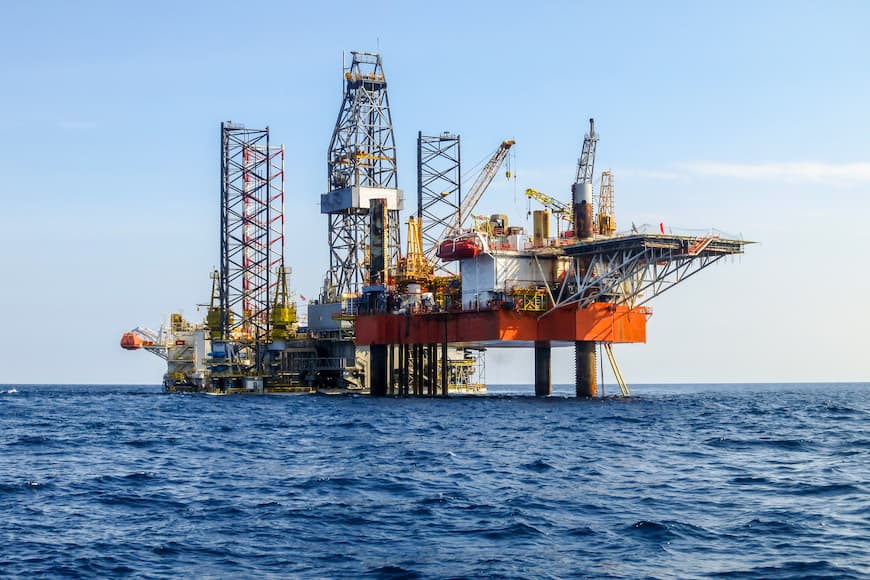In light of the energy crisis and the Ukraine war, the UK government has allowed Shell to start setting up its natural gas field named Jackdaw in the North Sea. The green light from the UK government comes just 8 months after that same government had prohibited the continuation of the project. The reasoning behind the earlier prohibition was the environmental concerns associated with the development of natural gas fields. However, the developments in the Ukraine war have made the government change its mind. Mr. Kwasi Kwarteng voiced the concern that the energy production capacity in the UK might not be high enough to meet the total energy demand. Especially in the coming winter when energy usage is higher than in the summer.
Published on: 07-06-2022
Separation from Russian gas can have severe consequences for the energy market
The U-turn of the UK government in the Jackdaw project can be explained by the sanctions on imports of Russian fossil fuels. Both the EU and the UK are in talks of partly or even completely cutting off Russian gas to punish the country for starting the war in Ukraine. At the moment there are rumours of cutting off as much as 75% of imports of Russian gas.
The UK, compared to other especially EU countries imports a relatively small percentage of its fossil fuels from Russia. Currently, as we can see in the graph below around 4% of British gas, 9% of British oil, and 27% of Coal come from Russia. However, a partial or complete ban on fossil fuel imports from Russia would still have significant consequences for the UK. Competition for imports from other major suppliers such as Saudi Arabia and Norway would intensify massively with many European countries being far more dependent on Russian fossil fuels. Bidding wars are a real scenario, which would obviously also drive up prices for UK imports.
Source: https://commonslibrary.parliament.uk/research-briefings/
Would the new gas field reduce dependency on Russian Gas?
The Jackdaw project will be the biggest North Sea oil and gas project in decades. The project has been officially licensed in 1970 already but all these years never had received official regulatory approval by the UK government. The aim for Shell, for now, is to start producing in the second half of 2025. Shell is planning to invest up to £25 billion pounds into the UK domestic energy production to ensure that future energy demand can be met and the reliance on fossil fuels from Russia or any other country is reduced. Shell estimates that the entire field could produce enough gas to supply 6.5% of UK gas demand. Which would be more than the 4% of gas in the UK that is provided by Russia.
Opponents claim that Jackdaw will not even lower energy bills
The Jackdaw project has received heavy criticism from opponents over the years. Criticasters responded heavily again after the announcement by the government that the project would receive the final regulatory approval. Climate experts state that scientific evidence points towards the necessity of cutting of greenhouse gas to keep the global warming limited to 1.5C, which already is remarkably high. Actually increasing the emission with a project such as Jackdaw is a step backwards and unexplainable according to experts.
Furthermore, opponents state that the project will only make energy bills rise. The project is due to start in 2025 and until then it will not have any impact on energy prices whatsoever they claim. Investing more in renewable energy instead of granting Shell a permit for this project would cut emission further, have a positive impact on energy bills and create thousands of jobs. Several environmentalists have announced the possibility of legal action following the recent approval by the UK government. Most notably, Greenpeace believes the decision by the UK government to be against the law and is considering legal actions.
Will households benefit or lose following this new policy?
Although the developments of the Ukraine war and the effects on the energy prices demand action, granting permission for this project might not be the right way to do so. It is very short term thinking, with a potential negative long term impact on climate change. And even when it is aimed at short term relief of pressure on energy supply, the fact that the project only starts in 2025 removes the benefit from actually granting permission. There will not be any immediate effect on energy bills following this policy change, which is the very reason that it was introduced according to the government. Probably, 3 years of continuous investment and improvement in the green energy sector would allow the UK to have a higher increase in domestic energy production while being far more environmentally friendly and with immediate impact. To be fair, the UK government recently announced plans to transition to renewable energy, with considerable investments in Nuclear and offshore wind energy to increase their production capacity. However, plans like the Jackdaw project and the delayed closure of coal plants seem to undermine their very own path towards a renewable future.
 7 June 2022
7 June 2022  5min to read
5min to read 